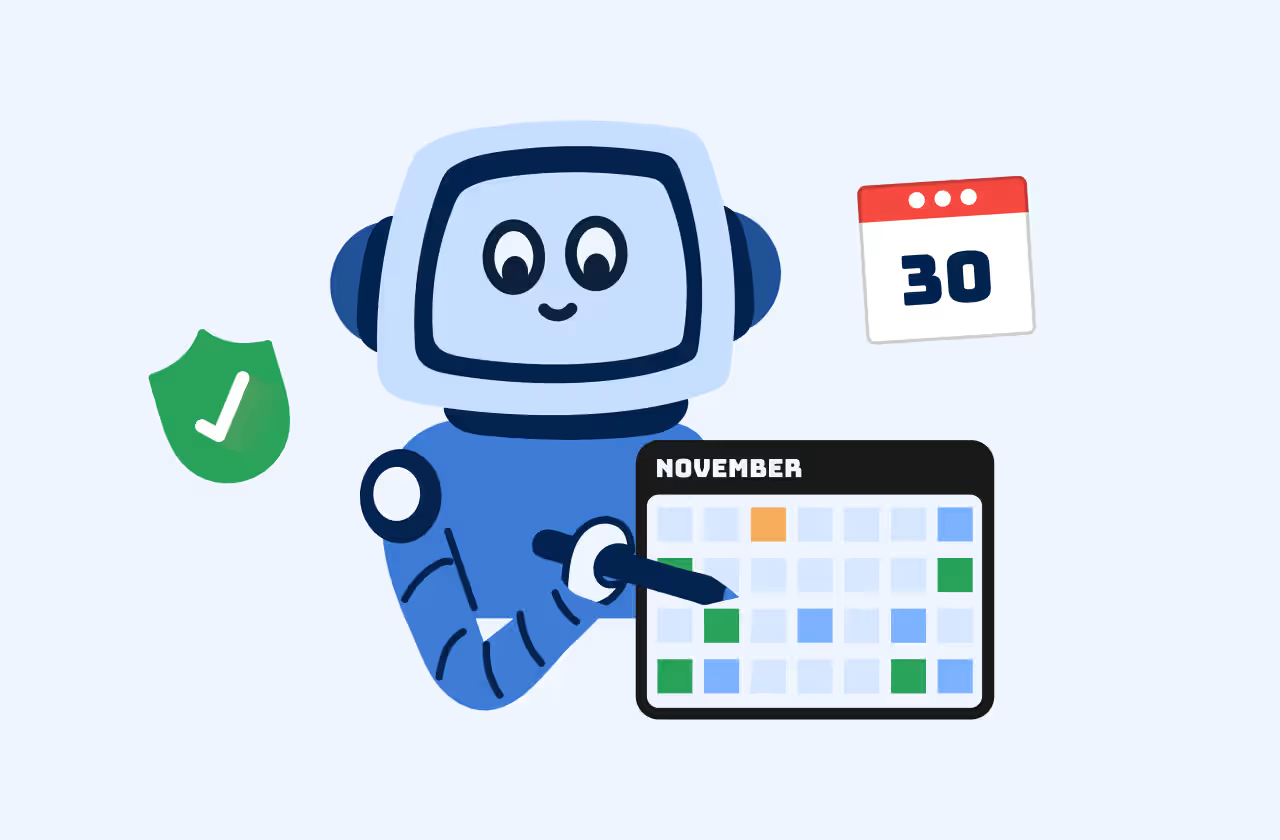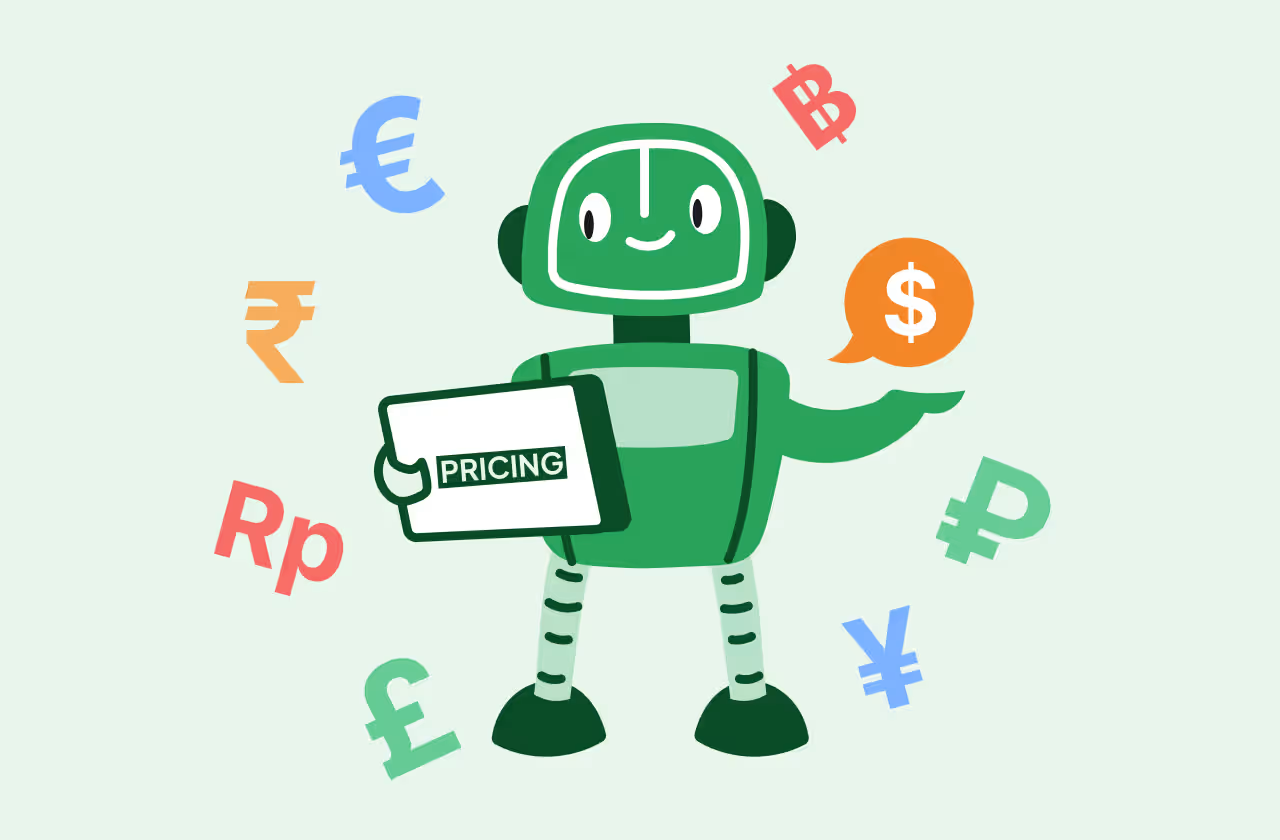Key Takeways
- Conversational AI agents understand intent and context, making chats feel natural.
- Businesses use them for support, lead generation, onboarding, and sales.
- AI agents work across WhatsApp, SMS, and web chat for faster responses.
- Message Central’s AI Agent offers multilingual support and real-time analytics.
- Start free and see how AI can improve customer conversations instantly.
Why Conversational AI Agents Matter More Than Ever
Think about the last time you tried to reach a business and got stuck waiting for a reply. Maybe it was through WhatsApp, SMS, or live chat. You had a simple question but ended up going in circles or waiting forever. Now imagine if that same conversation was handled instantly by a smart assistant that actually understood what you needed and responded like a human would. That’s what conversational AI agents do.
In 2026, these AI agents are no longer just fancy chatbots. They’re smart, flexible, and built to handle real conversations on channels your customers already use — SMS, WhatsApp, and web chat. They save time, reduce your team’s workload, and help customers get what they need faster.
In this blog, we’ll go over the most practical use cases for conversational AI agents you can try this year. Whether you’re in eCommerce, fintech, SaaS, or telecom, these examples will help you see how this tech can fit into your business.
What Makes a Conversational AI Agent Different from a Chatbot
A chatbot is like a menu-driven waiter. You press one for “Order Status,” two for “Return Request,” and so on. It works, but it’s limited. If you say something unexpected, the bot gets confused.
A conversational AI agent, on the other hand, understands intent. You can type “Hey, I never got my OTP” or “Can you check my last order?” and it will actually figure out what you mean. It uses natural language processing (NLP) and real-time data to respond intelligently.
Here’s a simple way to look at it:
- A chatbot reacts to what you say.
- A conversational AI agent understands what you mean.
This difference might sound small, but it changes everything. AI agents make conversations feel natural instead of robotic, which helps customers trust your brand more.
The Top Conversational AI Agent Use Cases to Try in 2026
Let’s look at some of the most useful and high-impact ways companies are using conversational AI agents today.
1. Automating Customer Support
Customer support is still the number one use case for conversational AI agents. Why? Because customers expect help 24/7. No one wants to wait for “business hours.”
An AI agent can answer FAQs, handle refunds, track orders, and even manage account requests without a human stepping in. The smart part is that it knows when to transfer a chat to a live agent if the query gets complex.
For example:
A telecom company can use an AI agent to troubleshoot basic issues like network errors, balance checks, or SIM activations. Only if the issue is serious does it send the chat to a real person.
Result? Faster resolutions and lower support costs.
2. Lead Generation and Qualification
Every business wants more leads, but no one wants to waste time sorting bad ones from good ones. A conversational AI agent can do this automatically.
Picture this: someone lands on your website and types, “Do you have a WhatsApp API?” Instead of making them fill out a form, the AI agent responds instantly — “Yes! May I know your business type and location so I can recommend the right plan?”
The agent can then qualify the lead based on budget, region, or use case and send it straight to your sales team.
You save time. Your customers get faster answers. Everyone wins.
3. Conversational Onboarding and Verification
This one’s perfect for fintech, banking, and eCommerce businesses. Instead of making users go through long signup forms, conversational AI agents can guide them step-by-step in chat.
Imagine an app where the agent says:
“Hi, let’s get your account verified. Can you upload your ID card here?”
Then it helps them take a picture, validates it, and confirms the account.
It feels personal, smooth, and easy — and that’s exactly what users want.
If your business sends OTPs for login or verification, you can even combine Message Central’s VerifyNow with the AI agent. That way, the same conversation handles both verification and engagement in real time.
4. Conversational Commerce
Shopping through chat is becoming the new normal. With conversational AI agents, customers can browse products, get recommendations, and complete purchases directly inside WhatsApp or SMS.
For example:
Customer: “I want to buy a power bank.”
AI agent: “Here are three options under $30. Would you like to see reviews?”
Customer: “Yes, show me the second one.”
AI agent: “Here it is. You can place your order here.”
The entire shopping experience happens in a chat window. No website. No app download. Just instant buying.
This use case is already booming in retail, D2C, and even food delivery. And in 2026, it’s only going to grow bigger.
5. Real-Time Notifications and Transactional Messaging
Sometimes users don’t just need information — they need updates. A conversational AI agent can handle all your transactional messages while keeping the chat interactive.
For instance, instead of sending a one-way message like “Your delivery is delayed,” your AI agent can say:
“Your order might arrive a little late today. Would you like to reschedule or track it in real time?”
This turns boring notifications into helpful conversations.
6. Feedback and CSAT Collection
Let’s be honest, nobody enjoys filling out surveys. But when an AI agent casually asks, “How was your experience today?” users are much more likely to respond.
You can collect instant feedback, measure sentiment, and even follow up if the feedback is negative.
For example:
“Sorry your experience wasn’t great. Would you like a callback?”
It’s simple, human-like, and far more effective than a static survey form.
7. HR and Internal Support
AI agents aren’t just for customers. They’re great for employees too.
Imagine an internal chat assistant that handles:
- Leave requests
- Password resets
- Payroll queries
- IT support tickets
Employees get quick answers, HR teams save time, and productivity goes up.
Future Trends You’ll See in Conversational AI in 2026
As AI technology improves, conversational agents are getting even smarter. Here are a few trends to keep an eye on:
- Personalized AI conversations: Agents that remember previous chats and tailor responses based on user history.
- Voice and multimodal support: Not just text. Voice, video, and even visual responses are becoming standard.
- Integration with marketing tools: AI agents are now connecting directly with CRMs and analytics tools for smarter campaigns.
- Industry-specific training: AI agents trained for sectors like healthcare, finance, or education for more accurate conversations.
If you’re planning to adopt conversational AI this year, pick a platform that already supports these next-gen features.
How to Choose the Right Conversational AI Agent
If you’re comparing different conversational AI solutions, here’s a quick checklist to help you make the right call:
- Multi-channel support: Make sure it works across SMS, WhatsApp, web chat, and voice.
- NLP and context awareness: It should understand natural human language and intent.
- Fallback logic: If the AI doesn’t understand something, it should pass it to a live agent smoothly.
- Customizable workflows: You should be able to create your own conversation paths and logic.
- Security and compliance: Especially important for finance and healthcare businesses.
- Analytics dashboard: Real-time reporting for message delivery, engagement, and user sentiment.
- Transparent pricing: No hidden charges for retries or fallback sends.
Message Central’s Conversational AI Agent checks all these boxes. It’s designed to be simple to set up, easy to train, and powerful enough to scale across multiple channels. You can start chatting with customers in minutes — not weeks.
Real Examples: How Businesses Are Using Conversational AI Agents
Example 1: E-commerce Store
A fashion brand added a conversational AI agent to handle WhatsApp queries. It now answers product questions, tracks deliveries, and sends reminders for abandoned carts. Within two months, the store saw a 20% jump in conversions.
Example 2: Fintech App
A fintech startup used an AI agent to automate onboarding and KYC verification. Users upload their documents right inside chat, and the AI verifies them instantly. The process that once took two days now takes two minutes.
Example 3: Telecom Company
A telecom provider added a conversational agent for balance checks, recharge updates, and network support. The result? A 40% drop in support tickets and happier customers.
These examples show that conversational AI isn’t just hype — it’s a real tool that helps businesses grow faster and deliver better customer experiences.
How to Test an AI Agent Before You Buy
Before you commit to any provider, always test the platform. Here’s how:
- Send sample queries – Ask real questions like your customers would. See how fast and accurate the responses are.
- Test fallback – Try confusing the AI with mixed questions. See how it handles errors or escalation.
- Check analytics – Make sure the dashboard shows useful insights like delivery time, accuracy, and engagement.
- Evaluate ease of setup – A good product should be easy to integrate without coding headaches.
- Start small – Use free credits or a trial mode to test with a few hundred messages before scaling.
Message Central lets you do exactly that. You can sign up, get 1,000 free messages, and start testing in real time.
The Bottom Line: Smarter Conversations, Happier Customers
At the end of the day, conversational AI agents are not just about saving costs. They’re about improving how your customers experience your brand.
A smart, friendly AI agent that answers instantly builds trust and satisfaction. It shows that your business values time and convenience.
If you want to get started, Message Central’s Conversational AI Agent is one of the easiest ways to try it. You can:
- Set up in minutes
- Talk to customers on WhatsApp, SMS, and web chat
- Use fallback logic automatically
- Track performance in real time
- Start free with 1,000 test messages
So go ahead — try it out. See how much smoother your customer conversations can be when an AI agent is handling the heavy lifting.
FAQs
1. What is a conversational AI agent?
A conversational AI agent is a smart assistant that talks to users on chat platforms like WhatsApp, SMS, or your website. It can answer questions, complete tasks, and understand natural human language.
2. How is a Conversational AI Agent different from a chatbot?
Chatbots follow fixed rules. Conversational AI agents understand context and intent, which makes conversations feel natural and accurate.
3: How do vendors handle multi-language conversational AI support?
Most vendors use machine translation, but the best ones offer native NLP models that understand local languages and context. Message Central’s Conversational AI Agent supports automatic language detection and multi-language chats out of the box.
4: How do I compare conversational AI agents before choosing one?
Compare based on language support, ease of integration, fallback options, analytics, and pricing transparency. Choose one that lets you test quickly and scale easily, like Message Central’s Conversational AI Agent.


.svg%20(1).png)
.svg)








